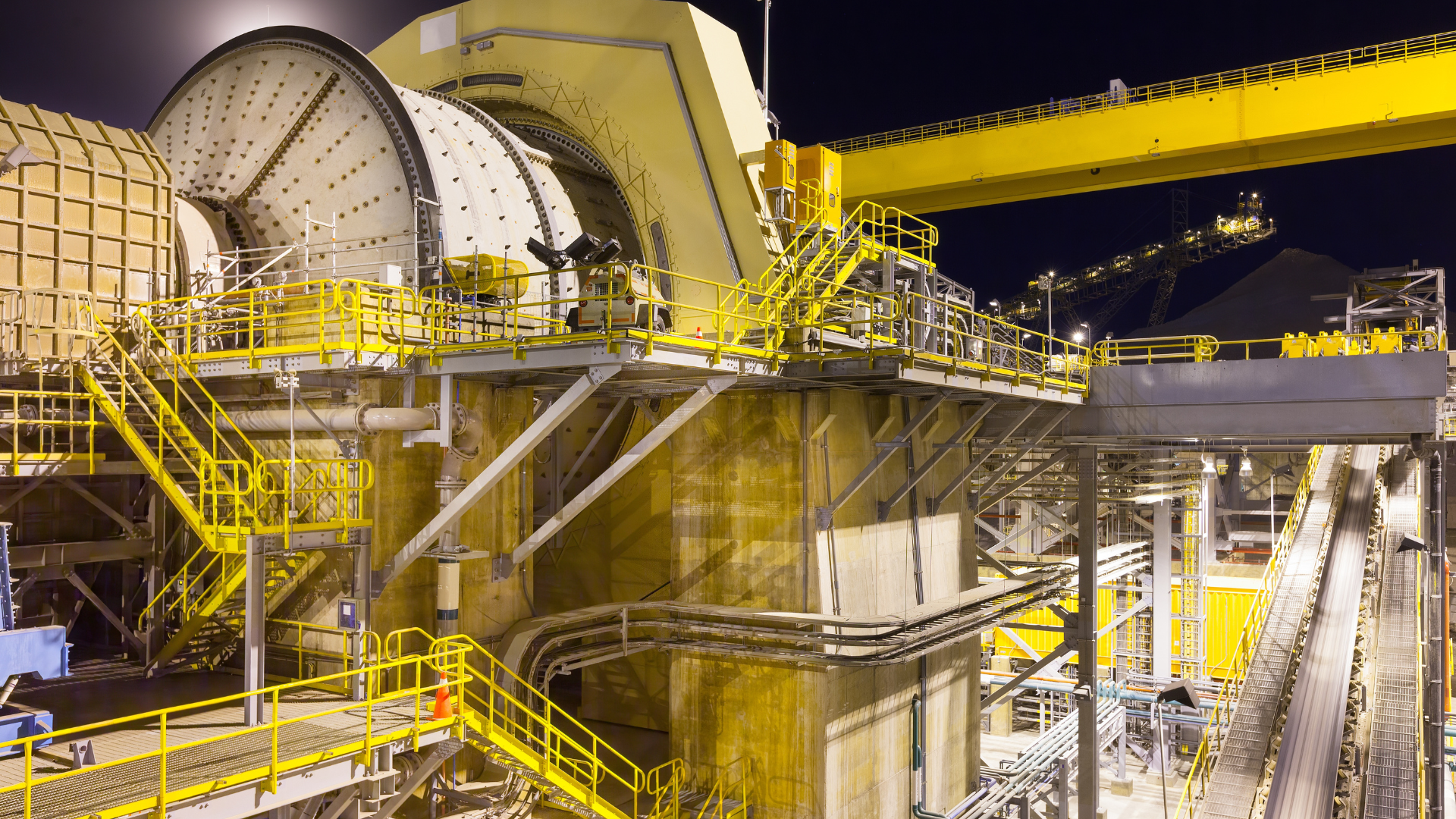In this interview, AZoMining speaks with Tom Strombotne, Senior Product Application Specialist at Thermo Fisher Scientific, about how modern, isotope-free technology is reshaping the field of mineral slurry analysis. Strombotne shares the capabilities of the Elescan XRF-100 and explains how real-time, multi-stream elemental analysis is driving smarter decisions and better performance in mineral processing operations.
This interview is a summary of an hour-long webinar - watch the webinar now.
Can you please introduce yourself and your role at Thermo Fisher Scientific?
My name is Tom Strombotne, and I’m the Senior Product Application Specialist here at Thermo Fisher Scientific. I’ve spent more than 40 years working with slurry analyzers, from development to implementation, and supporting mining operations around the world. My focus is on helping mineral processors apply real-time elemental analysis to optimize recovery and reduce operating costs.
Why is real-time mineral slurry analysis so critical for mineral processing plants?
It all comes down to operational excellence. When you’re working without an online analyzer, you’re relying on lab samples that give you results after the fact—once the material is already in the concentrate or tails. Real-time analysis gives you a window into the process as it’s happening, so you can make fast, informed adjustments, stabilize grade, optimize reagent use, and improve overall recovery.
How does the Thermo Scientific™ Elescan XRF-100 improve on legacy analyzers?
First, it’s isotope-free, which means safer operations and fewer regulatory concerns. It uses a low-power, air-cooled X-ray tube instead of high-powered water cooled x-ray tubes, eliminating the need for refrigerated chillers. The Elescan XRF-100 delivers fast, multi-element readings - up to 15 elements plus percent solids - in as little as 15 seconds. It’s more compact, modular, and cost-effective to maintain, especially compared to older WDXRF-based systems.
What makes the Elescan XRF-100 particularly suitable for flotation plants?
It’s designed to integrate seamlessly with multi-stream setups in flotation circuits. Whether you’re dealing with feed, concentrate, or tailings, the Elescan XRF-100 handles variable slurry compositions without dilution. Its centralized multiplexing system allows plants to monitor up to 15 streams, supporting flexible control strategies and rapid response to changes in ore grade or reagent performance.
Can you explain how the analyzer measures multiple elements so quickly?
The core technology is energy-dispersive X-ray fluorescence (EDXRF). It uses one high-resolution detector that reads the entire energy spectrum simultaneously. As slurry flows through the flow cell, it’s irradiated by the X-ray tube. The resulting fluorescence is captured and processed using advanced digital signal processing, allowing us to present results for 15 elements and percent solids in less than a minute—often in just 15 seconds per stream.

Image Credit: Jose Luis Stephens/Shutterstock.com
What kind of accuracy or performance can users expect compared to lab analysis?
The accuracy is excellent for process control purposes. In our copper-moly case study, the analyzer showed strong correlation with lab results, even in low-grade tailings and for trace contaminants like arsenic. It’s also capable of identifying trends like declining feed grade or rising arsenic that let operators act before issues impact concentrate quality or recovery.
How does Elescan XRF-100 integrate with existing plant infrastructure and systems?
It’s fully compatible with modern and legacy systems. It supports Modbus TCP/IP, OPC UA and DA, and even old-school Modbus RTU if needed. If you’re replacing a legacy analyzer, we can often reuse your existing multiplexers and piping. The analyzer also generates a SQL database that integrates easily with plant historians, allowing your data to feed directly into control systems or dashboards.
Watch the Webinars Now
What long-term operational savings can a plant expect from switching to Elescan XRF-100?
The biggest savings come from the low cost of ownership. Because it’s low-power and air-cooled, there’s no need for expensive chillers. The X-ray tube has a long life and low replacement cost. And the EDXRF detector, being one detector for many elements, means fewer components tend to fail or end up needing to be replaced. Over the lifespan of the unit, the maintenance costs are significantly lower than those of legacy systems.
What are some optional features that enhance the analyzer’s usability?
We offer a vacuum filter system designed to dewater composite samples before lab submission, helping reduce handling time. An automatic window roller is also available, allowing the slurry contact window to be replaced without manual intervention. Together, these options minimize labor, improve reliability, and simplify the workflow for plant operators.
Any final thoughts on where mineral slurry analysis is heading?
We’re at an exciting point where fast, reliable, real-time data is no longer a luxury—it’s becoming essential. Tools like the Elescan XRF-100 are helping mining operations move from reactive to proactive control. With greater visibility into your process, you’re better positioned to make smart, timely decisions that improve profitability and sustainability.
About Tom Strombotne
 Tom Strombotne is a Senior Product Application Specialist at Thermo Fisher Scientific and a leading authority in mineral processing instrumentation. With over four decades of experience in elemental and particle size slurry analyzers, Strombotne has played a key role in developing and implementing real-time analytical solutions for the mining industry. He has led numerous projects around integrating sampling and analyzer systems into flotation circuits across the globe.
Tom Strombotne is a Senior Product Application Specialist at Thermo Fisher Scientific and a leading authority in mineral processing instrumentation. With over four decades of experience in elemental and particle size slurry analyzers, Strombotne has played a key role in developing and implementing real-time analytical solutions for the mining industry. He has led numerous projects around integrating sampling and analyzer systems into flotation circuits across the globe.
Tom has deep expertise in both particle size and elemental analysis technologies for grinding and flotation circuits in mineral processing plants and is passionate about advancing isotope-free analyzer solutions that are safer, faster, and more efficient. His work emphasizes operational excellence, cost reduction, and maximizing recovery. He frequently collaborates with engineering teams, plant operators, and technical staff to ensure seamless deployment and performance of slurry sampling and analytical systems.

This information has been sourced, reviewed and adapted from materials provided by Thermo Fisher Scientific – Mining Process and Analytical Solutions.
For more information on this source, please visit Thermo Fisher Scientific – Mining Process and Analytical Solutions.
Disclaimer: The views expressed here are those of the interviewee and do not necessarily represent the views of AZoM.com Limited (T/A) AZoNetwork, the owner and operator of this website. This disclaimer forms part of the Terms and Conditions of use of this website.